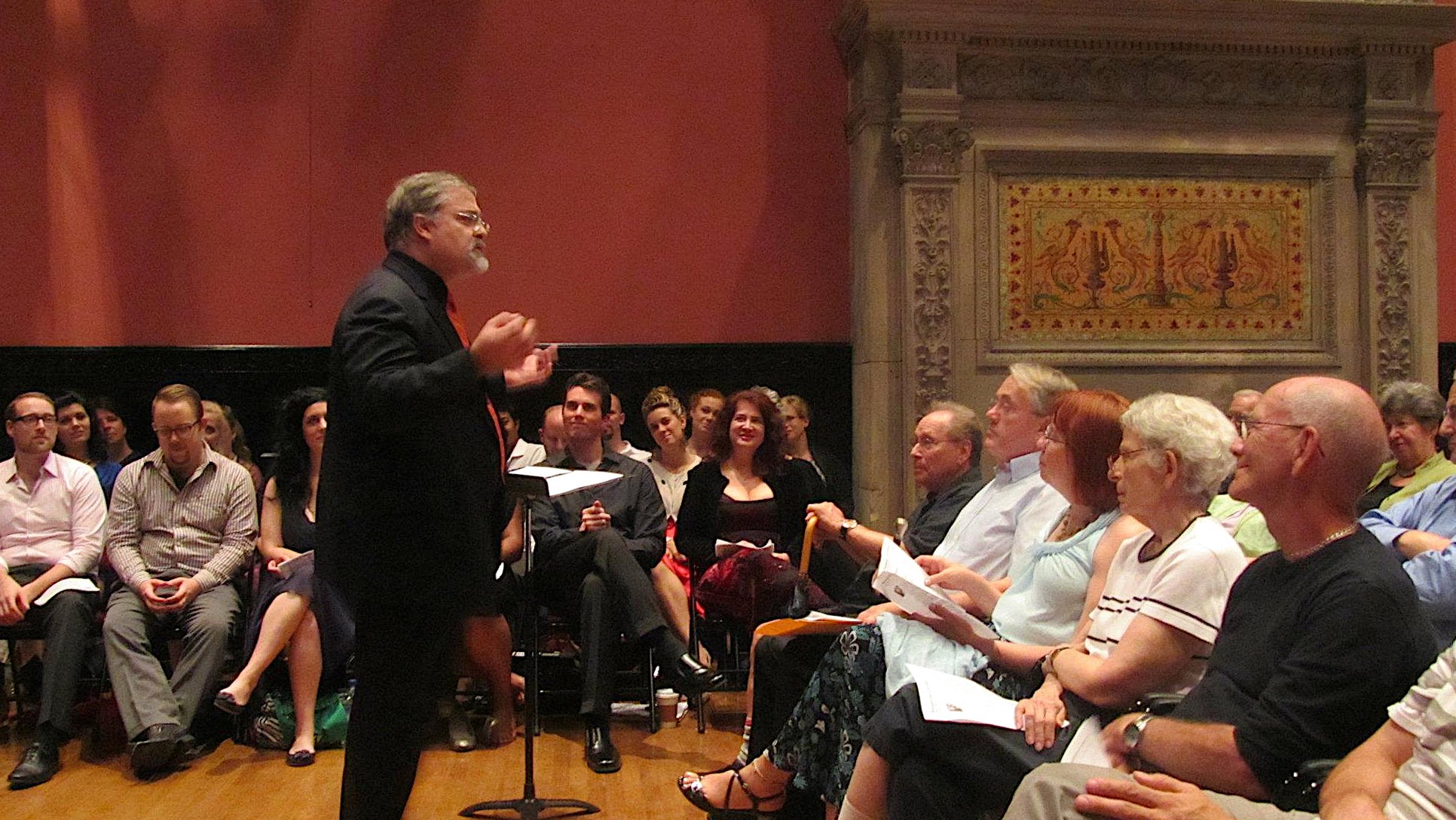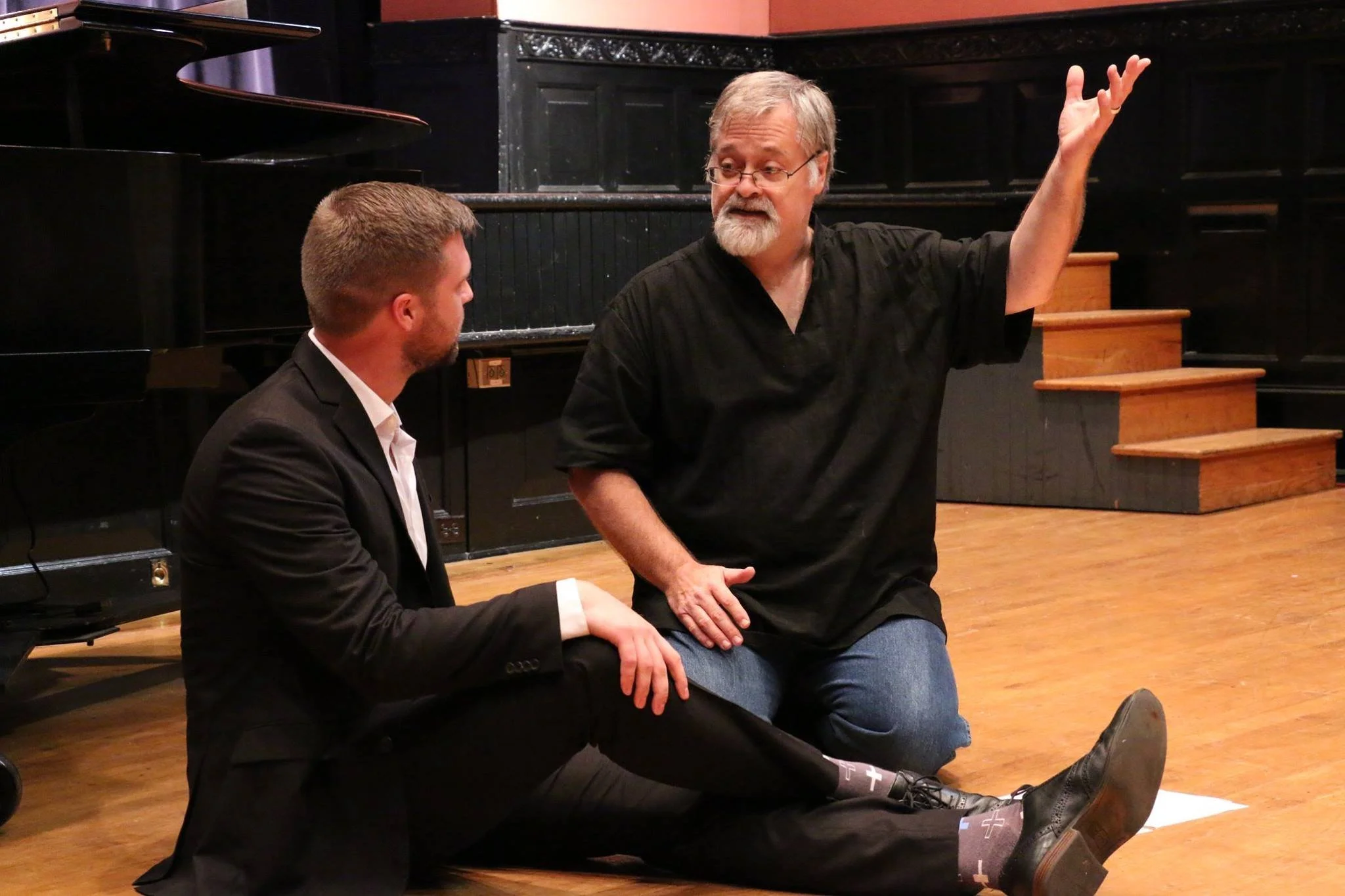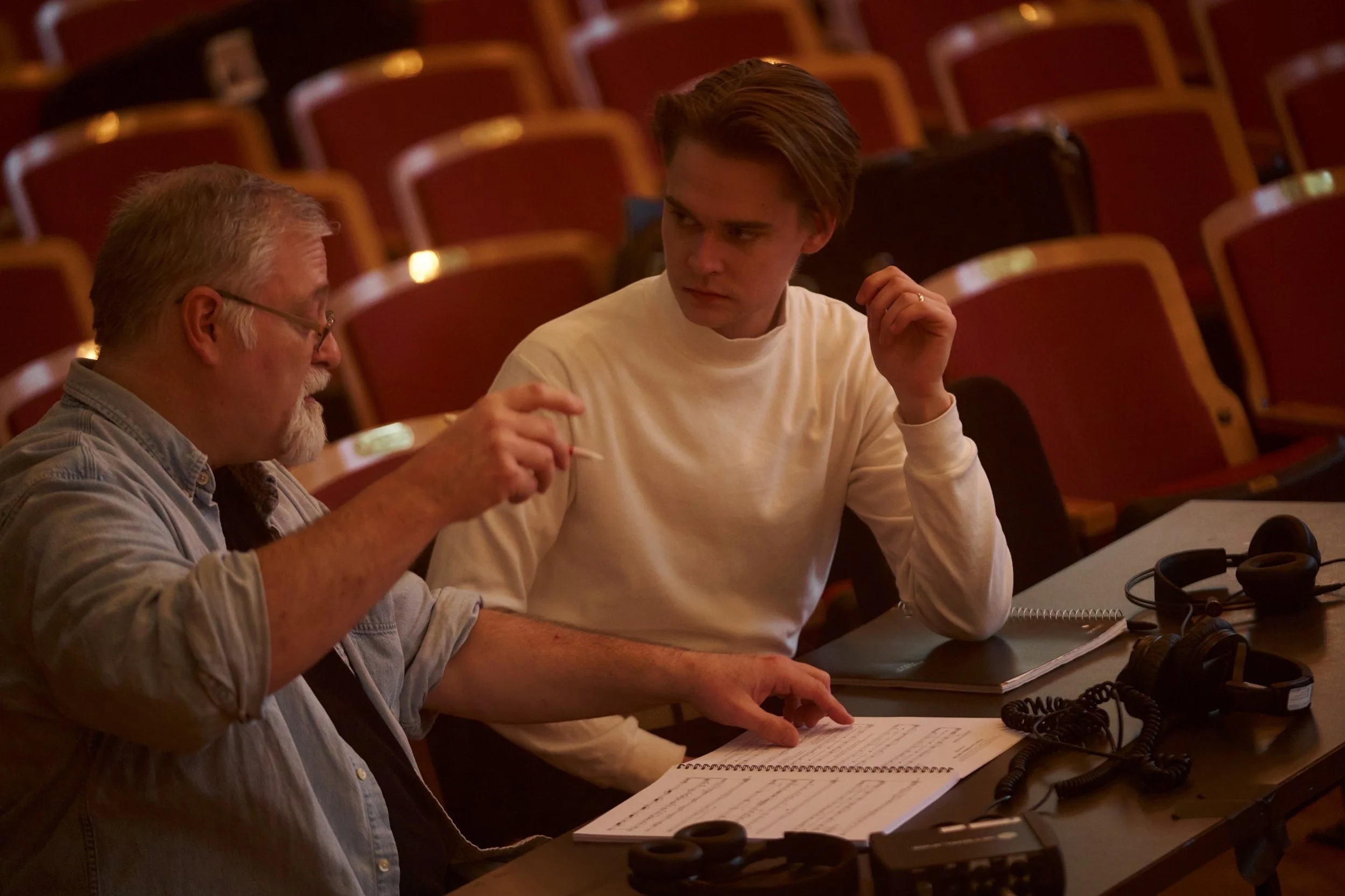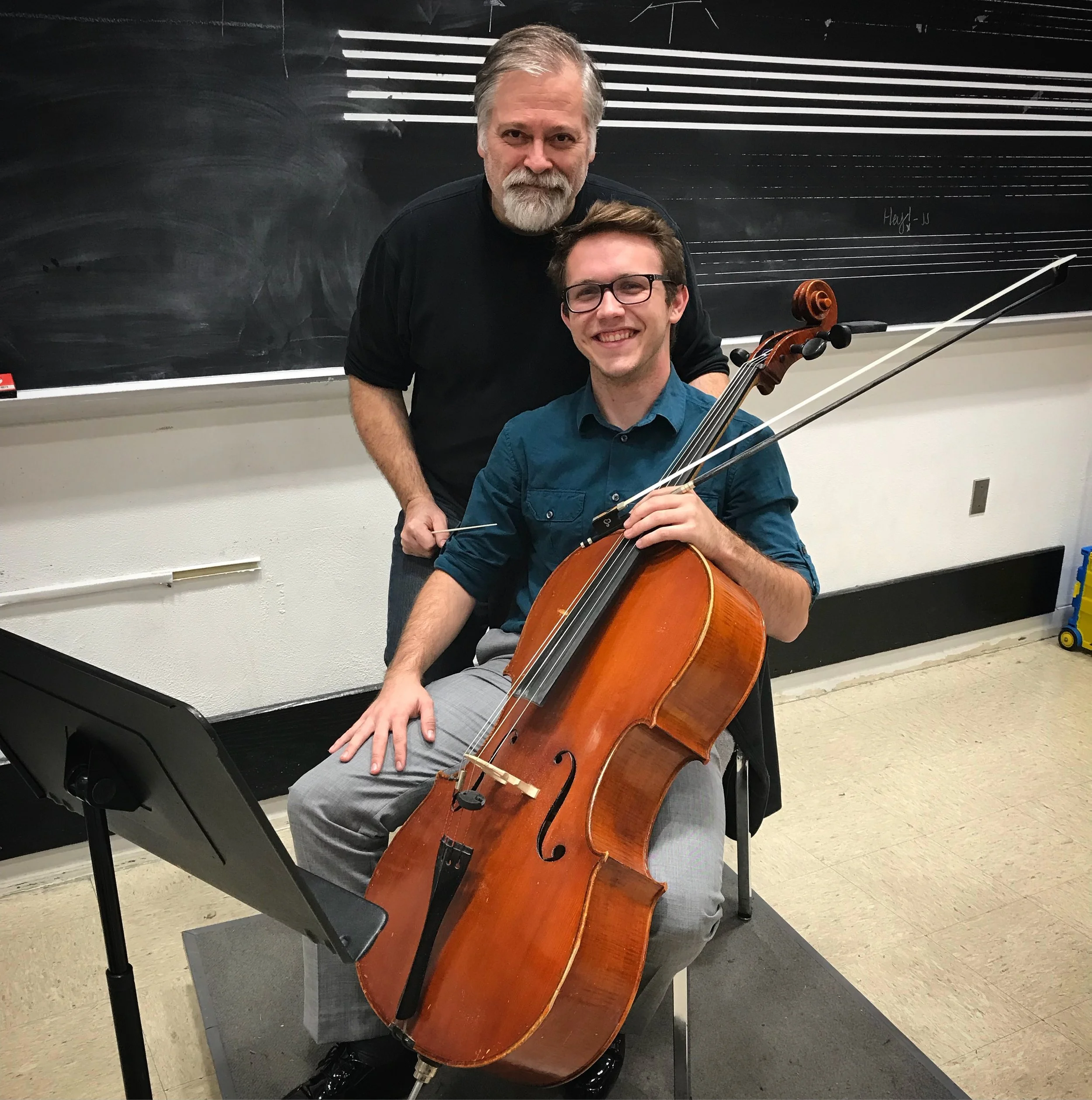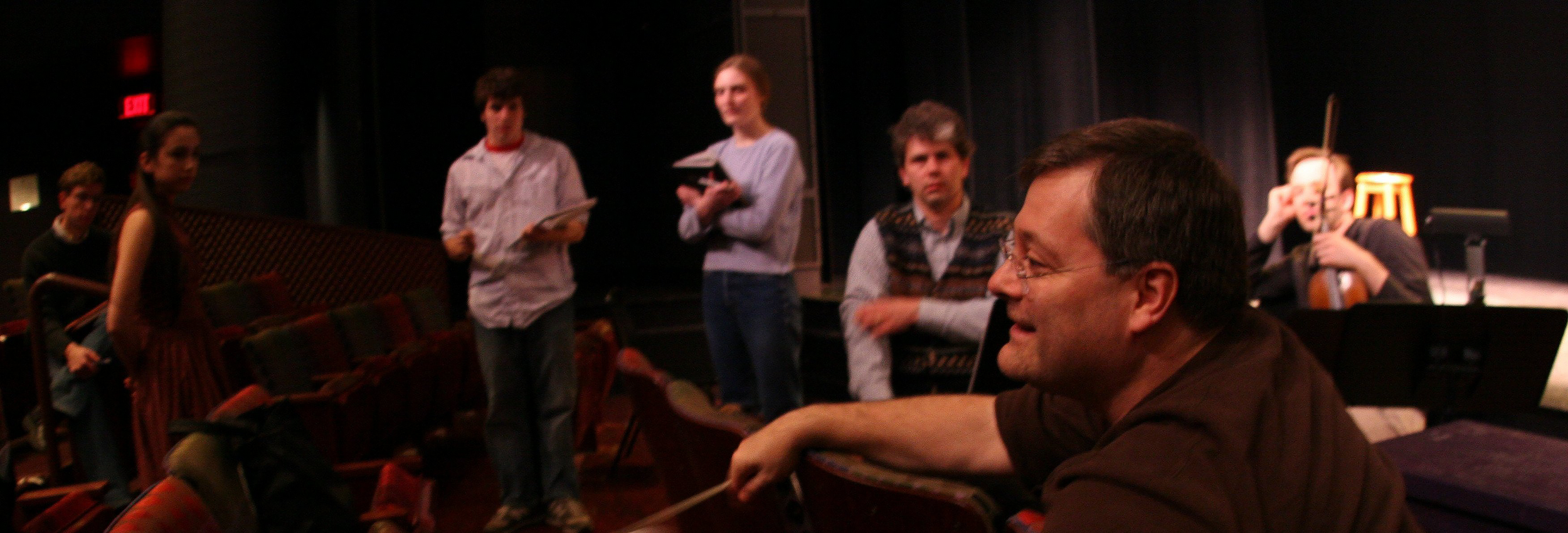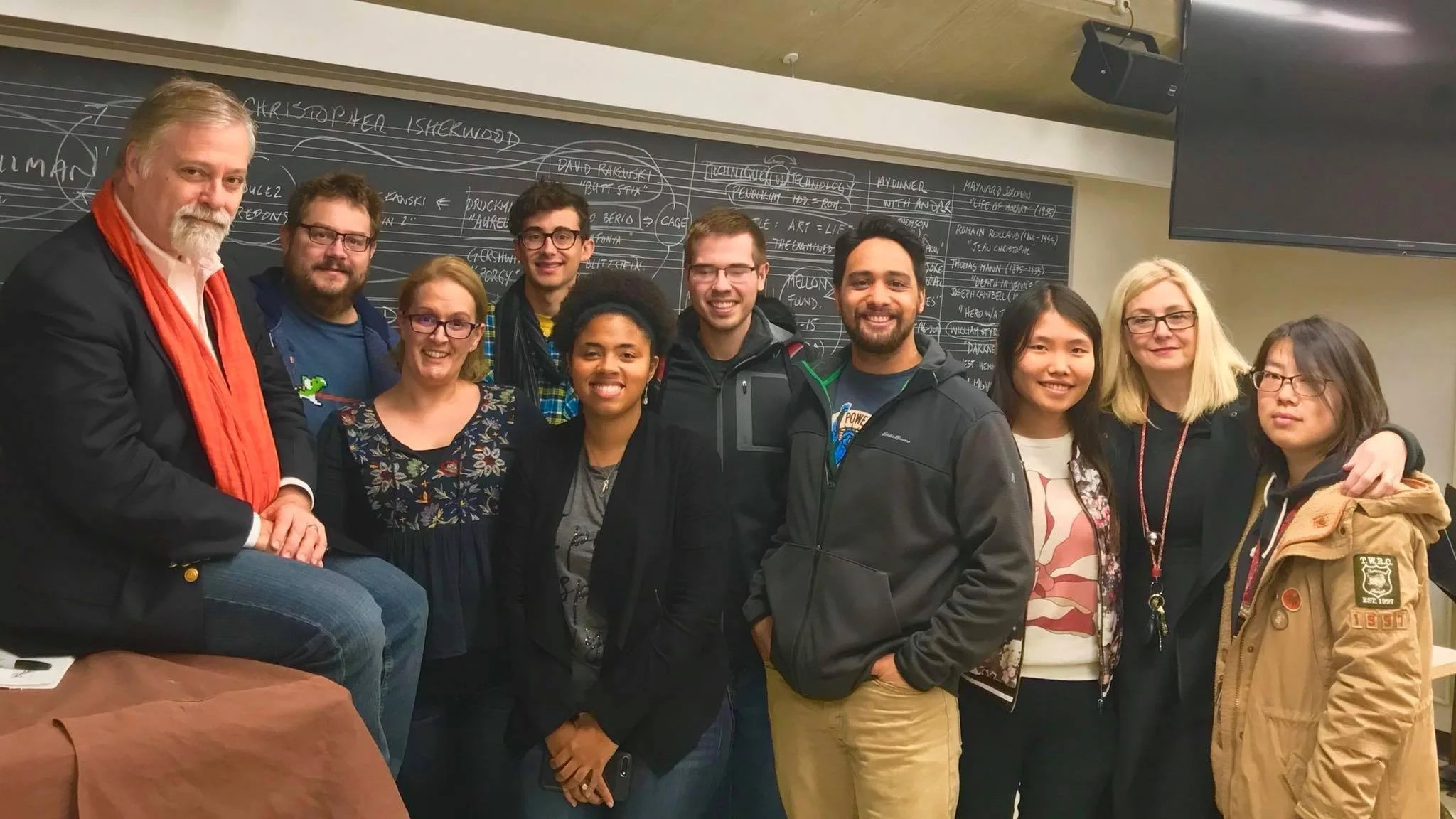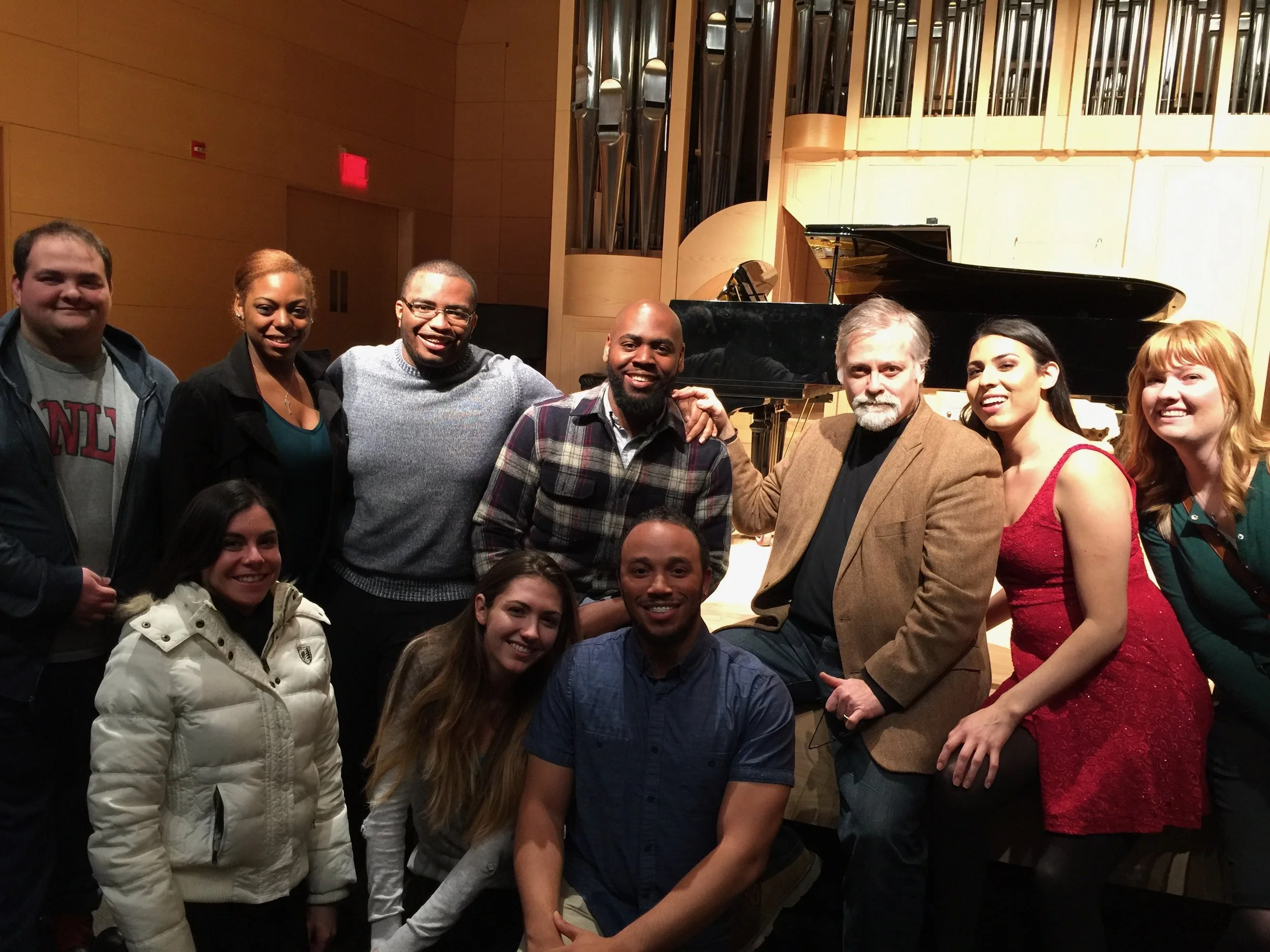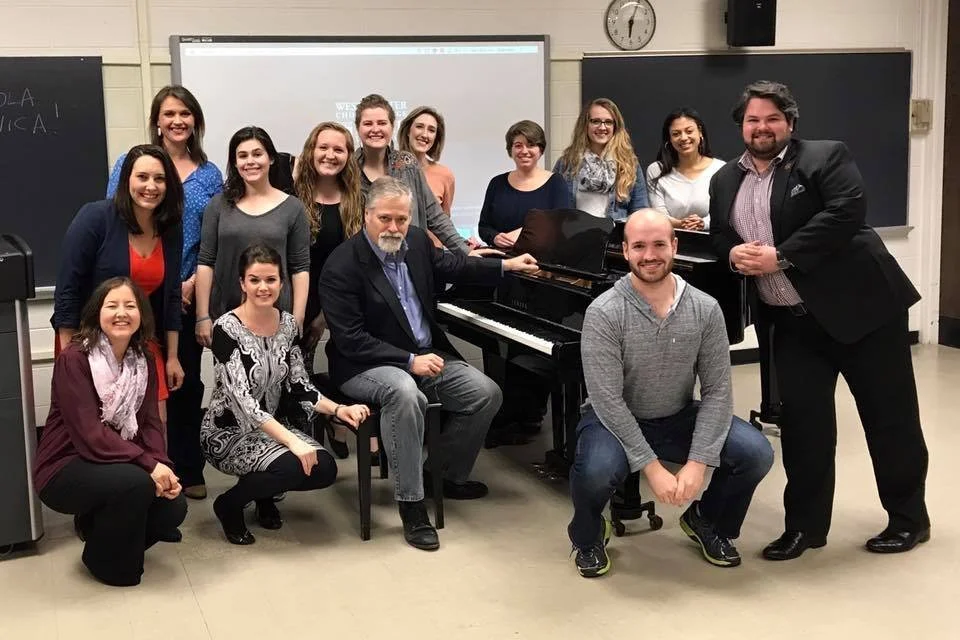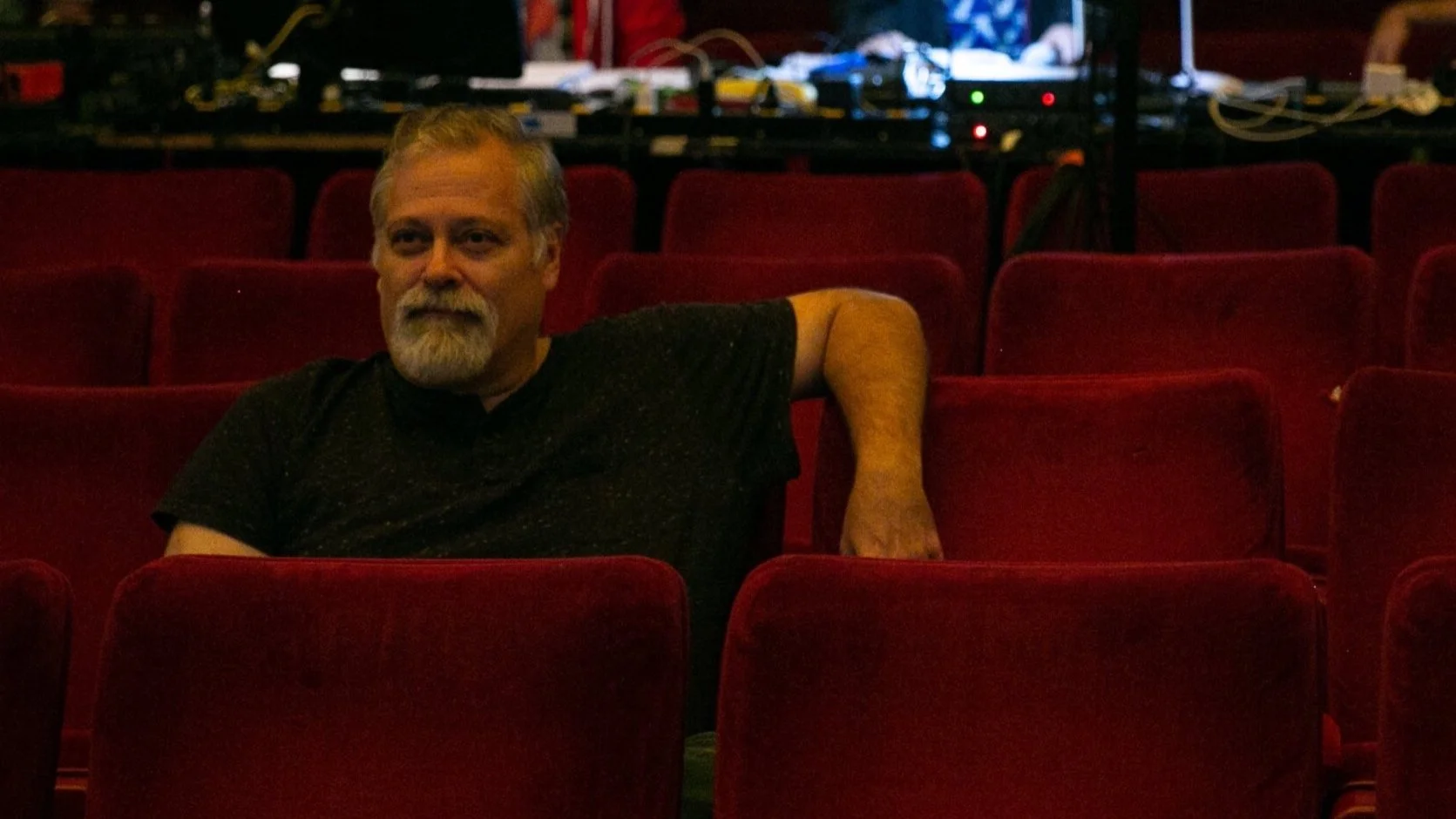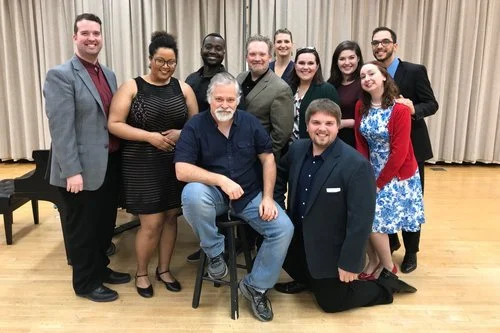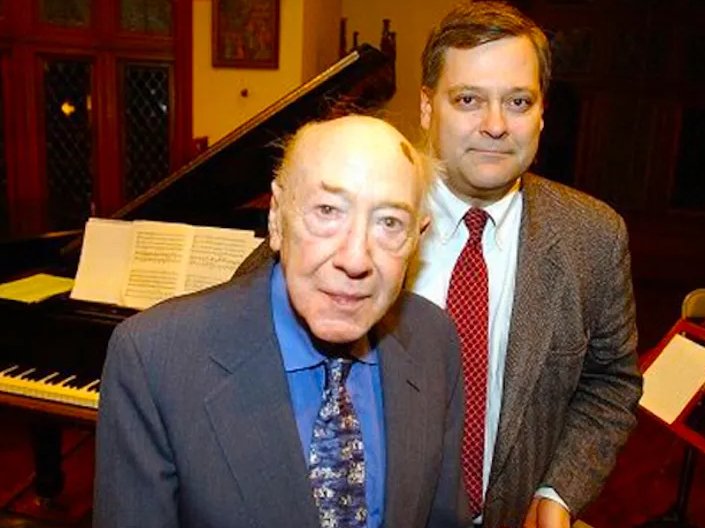Beginnings
I’ve wondered aloud why and how dogs howl at the moon, described with admiration the raw power of Kurt Cobain shredding “Smells Like Teen Spirit,” described what I feel is the noble sadness of Maria Callas, the rugged craftsmanship of Haydn, the ebullient time-bending of Steve Reich, the timeless idiosyncrasy of Satie’s Socrate, the emotional brutality of Richard Wagner, the insouciance of Gershwin, the unknowability of Bach, the happy-sad of Mozart. (As if the preceding list of a few Western artists begins even to scratch the surface of what music is and can and will be.) For forty years, giving masterclasses, lessons, teaching courses, and offering coachings, I’ve corrected notation, passed along oral history, encouraged creative risk, and asked what I’ve thought were good (or at least pertinent) questions. I’ve cautioned against pleasing aesthetic role models and railed against the way that young composers are often encouraged to put leashes around their own creative spirits. I’ve tried to share the puzzlement and ennobling essence of music’s conundrum — how it is an abstract art that nevertheless channels emotion; how, while being about nothing at all, music is about love.
I am twenty-six years old, sitting cross-legged in a circle with my Bard College undergraduate composition students in October 1988, wrapped in sweaters, drinking coffee sheltered by the leaves at their zenith against an aquamarine sky, making musical instruments out of objects we’ve collected in the surrounding woods. Three don’t read music; one senior has already spent three years studying with Joan Tower and wants to write an orchestra piece; one is a gifted cellist studying with Luis Garcia Renart; one is a singer-songwriter, the son of a famous folk musician; one is a visual arts major thinking about changing majors. “What are we going to play first?” asks one. “We’re going to arrange the first 25 bars of Stravinsky’s Dans Sacral from the Rite of Spring for us to play together.” “When do we get to compose something?” asks another. “We create solo pieces for ourselves first, then perform them for each other; then we each write something for the entire ensemble.” “Do we write them down?” “Yes, this time, but maybe not the next time. Notation isn’t everything. I’ll show you how,” I answer, taking a pull on my coffee and feeling really, really good. Their serious faces intent on their busy hands, as they create their instruments. And me talking to them about the basics — melody, harmony, rhythm, counterpoint, narrative — as we work the way that Mother and I used to when she washed and I dried, not looking directly at one another, but communicating directly while focused on something else, like looking out the window at the trees resuming green.
The eminent New York composer Louis Karchin and I had met at Yaddo, and he needed an assistant conductor. In time, he passed along the role of conductor to me. So, from 1988-90 I conducted the NYU-Washington Square Chorus. It wasn’t really a teaching job, but it remains the first entry on my CV. At the same time, Fran Richard at ASCAP called to tell me that Joan Tower was interested in offering me a job teaching at Bard College. I told her I wasn’t interested, and that I was too young to teach. I’d only just left Juilliard. She told me to do what I was told. I told David Del Tredici about Joan’s offer and he grimaced. Palms extended out and down, he exhaled explosively: “God, how I hate teaching,” he said. “It causes me physical pain. But Aaron [Copland] told me to take the job at Harvard, and I’ve taught somewhere ever since.” Another great American composer pianist, Michael Torke, related to me recently how his mother insisted that he “share his gift” as a child by teaching piano lessons, a task he detested. As though these two extraordinary artist’s musical compositions alone were not gift enough to the world! Michael rightly points out that some artists, like Leonard Bernstein, simply cannot help themselves: they are born teachers compelled to teach.
When Joan’s call came, like David and Michael, I wasn’t interested in teaching, but I agreed to take the train Upstate to Poughkeepsie for an interview. Nobody came to meet me. Vastly relieved, I called Fran and told her that I had been blown off and she said where are you and I told her and she said you got out a stop early, Bard is the next stop, so call them. I called Joan, who told me not to worry, come back next week. I did, and ended up teaching at Bard from 1988-1997, ending my stint as an Associate Professor, having taught the entire undergraduate theory sequence, counterpoint, ear-training, orchestration, score reading, and chamber music. Leon Botstein, Bard’s polymathic president, conducted several graduating seniors’ orchestral works each year in concert with the American Symphony Chamber Orchestra, providing a powerful incentive to the more artistically ambitious students and their composition teachers to get cracking.
“As for the Princeton Atelier, I’m learning more than I’m teaching!” I jot in my journal in January 1999. “8 composers, 8 singers, 8 writers, Paul Muldoon, and me in a room equals magic: I talk about art songs; Paul talks about poetry and reads some; I talk about pop song forms and sing some; we both talk about prosody from opposite directions (very cool); Paul shares lyrics; the composers set the poets’ words; the singers sing the new songs; I coach; Paul critiques —it’s a crazy-effective format I called From Art Song to Parola Scenica and it’s the most fun I’ve had teaching since the 80s.” Sighing, I turn to the 802 invoices coming in from the copyists for the performance materials, and the printout of the news that I am going to have to hire a baritone at my own expense to sing the role of Kane in the upcoming premiere of Bandanna in Austin. “Well,” I write, “the money I get paid for teaching the Atelier will just about cover these costs. But this is what I signed up for.”
During the 1993-94 school year, and again during the 97-98 school year, I guest taught as a Visiting Professor at the City College of New York for David Del Tredici during his sabbatical years — private composition students, of course — but also orchestration and analysis. From 1996-98 I joined the Curtis faculty, giving composition lessons to “non majors” in what was described to me by Gary Graffman as a sort of holding pattern until Ned retired.
I’m thirty-one, teaching Ned Rorem’s students for him in the Barber-Menotti Room at Curtis in 1992, playing and singing through their one act operas and offering feedback. In my diary on the way down to Philadelphia to teach, I write, “I am only about ten years older than they, and I fastidiously eschew Ned’s “Ex cathedra pronunciamenta” as only a middle class, Midwestern Lutheran can. It’s entirely possible that my young charges might interpret this – as David Diamond predicted they would a few years ago – as a lack of stature.” When I arrive, I learn that one of them has musicalized (as had I a decade earlier when I sat where he is sitting) a playlet by a famous playwright friend of our teacher’s. “Did you get the rights?” I ask. “No.” So I launch into a long monologue about the importance of, and the process of, acquiring rights. Immersed in my spiel, I fail to read the room. The prosody is awkward, but the music is brittle and interesting. Feeling pulled off center, I forget to praise the work before I critique it. I make a few comments about strong syllables on weak beats and line readings and then come up for air. I am entirely unprepared for the lesson to have been a flop, but it is.
As for teaching musical skills, I admit to having benefitted from the protégé effect during my first few years on the Bard faculty, when I was essentially only a chapter ahead of my students, unsnarling musical theory nomenclature in order to figure out a way to teach it myself because I had tested out of having to take the courses myself in graduate school at Juilliard, having taught myself theory as a kid from Arnold Schoenberg’s Theory of Harmony, and then again – differently — having learned Bruce Benward’s theoretical system at the University of Wisconsin, and then Felix Salzer and Carl Schachter’s books (heavily into Heinrich Schenker), which were made to make sense — to me, at least — by the brilliant musicians and theoreticians Edward Aldwell and Ford Lallerstedt, at Curtis. The same went for teaching ear training, which I had learned by singing using “moveable do” as a kid at the Wisconsin Conservatory of Music, then scale degrees in Madison, then “fixed do” at Curtis. What a mess.
Can composition even be taught? Ned’s article, “Learning With Daron,” in the April 1993 issue of Opera News, addressed the question excellently. He pointed out that I teach reflexively, the way that I compose and breathe. I find craft easy to impart, and the process of fostering creativity practically impossible. One can go down a thousand rabbit holes through self-indulgence — abusing the use of parable as a teaching tool by sharing stories whose meaning exceed the pupil’s comprehension; allowing practical advice to devolve into cod psychology and so-called “life lessons.” (Mistakes I made for years.) I know that the student must desire to learn, as I desired to learn from Ned, and that good teaching is bespoke. “I’ve never been a parent before,” I admit to my sons occasionally — usually after a particularly spectacular paternal fail. I am still learning how to be a composer myself, still trying to figure out what composing is. That’s a start. It’s been nearly thirty years since I’ve sat through a faculty meeting, despite having been delighted to have served as a guest lecturer, composer in residence, artist in residence, swashbuckler du jour, or whatever, at over a dozen educational institutions, not to mention masterclasses all over the place. Increasingly, I find myself feeling when I teach composition not as though I am singing so loudly that I cannot hear other peoples’ voices, but that the societal din through which I am trying to express myself is almost completely drowning me out. All that is left are unanswered questions.
I am forty years old, doing double days during the sweltering summer of 2001 in Manhattan—jury duty during the day, composing and practicing in the evenings—when the symptoms of appendicitis present: severe pain in the lower right side of my abdomen, taut belly, and cold sweat. Like everyone without insurance, my only recourse is the emergency room. Fortunately, we wrap up jury deliberations that day, and Doctor F., the retired doctor who composes with a passion usually reserved for Byronic heroes, is scheduled for his weekly lesson. He has me stretch out on the Monk Bed. Tapping my belly like a cantaloupe, he asks, “How long?” “A few hours,” I reply. “Probably early enough to address with Cipro,” he says, shaking his head doubtfully. Handing me the prescription, he says, “We will walk to the pharmacist together. If it doesn’t clear up within six hours, go straight to the E.R. You’re taking a grave risk, Daron.” “Why now?” I ask him. He sighs. “I believe you have brought this on yourself, Daron,” he says. “People can make themselves sick. That’s what you have done.” I look at the floor. “Why do you want to die?” he asks, quietly. I look up at him sheepishly. The score of Pierre Boulez’s Répons is spread before us on the table. I am supposed to be teaching him, but he, thirty years my senior, teaches me. He motions at the notes meticulously etched on the oversized pages like maps of neurons in a brain. “You understand these notes. I understand some medicine. The notes add up to more than their sum. Your life decisions do the same. Change your life.”
Middles
From 2005-2013 I served as the festival artistic director and chair of faculty (ringleader?) for the Seasons Fall Music Festival in Yakima, Washington. The two-week festival consisted of three symphonic concerts, eight chamber concerts, three recitals, and three jazz concerts (visiting artists like Karrin Allyson, Gary Burton, Chick Corea, Branford Marsalis, Bill McGlaughlin, and Marvin Stamm). In addition to the administrative service of overseeing the activities of our twelve-member faculty, I performed and coached chamber music and taught composition. I delighted in the creation, with Pat Strosahl and Brooke Creswell, of an overall festival ethos that programmed jazz and concert music in equal portion, and interspersed performances of new works throughout to eliminate stylistic ghettoization. The curriculum itself centered on the pairing, for the duration of the festival, each conductor with a composer (they even roomed together). The entire cohort attended every masterclass by visiting artists, scholars, and faculty. I programmed films whose scores were then discussed, Pat curated shows by Washington visual artists and emceed wine tastings of local Yakima cheer, and I booked poets to give readings.
Composers mounted the podium; conductors composed. Everyone bonded over their shared dread of movement class first thing in the morning together and were subject to the same expectations. Every participant attended every Yakima Symphony concert, and received lessons from our composers (Gilda Lyons, Miles Hankins, Alberto Demestres, and me) and the conductors (Brooke Creswell, Donald Thulean, Lawrence Golan, and Robert Frankenberry), as well as chamber music time with the Finisterra Piano Trio and guest ensembles like the Imani Winds and Kairos String Quartet. At the final orchestral concert, each conductor led the premiere of their partner composer’s work; the conductors also led movements of standard repertoire. So many premieres. The festival also presented the American premiere of Bernard Jacobsen’s own retelling of the Stravinsky Soldier’s Tale, conducted by Lawrence Golan, with Bernard, glass of local Yakima wine in hand, providing the witty, erudite narration; Michael Wemberly blowing the roof off the place with an enormous percussion ensemble; Seattle Opera’s David McDade discussing vocal preparation; an elegant cabaret night sung by Rob and Gilda for which I arranged and played a setlist that bounced from Weill to Raposo, Mancini to Blitzstein, Rorem to Gershwin to Sondheim to Eisler, Bernstein to Brel, and on and on. It was fun. Writer and critic Doug Ramsey chronicled it all on artsjournal.com in his column Rifftides, providing context reviews, and a national audience to what we were achieving. The commitment was not just to diversity in programming, hiring, and the choosing of festival students, but to the creation of a mutually-supportive, non-competitive space where creative risk
The function of teaching composition in music’s eco-structure is like sowing wildflower seeds in a fallow field to nurture the soil. Not all of the seeds will grow. Most, in fact, will go out and do something else, having developed a better understanding of what being creative feels like, enhanced communication skills, and an appreciation for the way creative problem solvers think. Learning to grow is the point, not learning to grow like one’s teacher. I was aware in the mid-eighties when I left Juilliard before completing the doctorate that academia was a square hole and I was a round peg. The academic world’s entirely understandable need to require of its citizens (at least semi-empirical) proof of intellectual credibility seemed less important to me back then than immersing myself in an artist’s examined life. I didn’t suppose that I couldn’t be bothered to teach, or that I viewed an academic position as a Plan B, but I knew that my growth as an artist was being hindered by further institutional supervision.
“Shame,” I tell the thirty or so workshop participants and audience of about 200 at the Academy of Vocal Arts in Philadelphia on a gorgeous September afternoon in 2012 as part of the Russian Language Workshop, “is the nuclear reactor that powers the libretto of Pique Dame.” Pausing for emphasis. “Of course it appeals to this Lutheran Boy.“ A few chuckles. “Sha-a-a-m-e,” I sing, sizing the air in front of me as the audience. Rolling laughter. “’Life is a game.’ Now, what does that mean? It doesn’t mean that life is light pickings. It means that games are brutal, like death.” “Marc gave lectures for money,” I recall Virgil Thomson telling me back in the 80s when I worked for him at the Chelsea as I continue to lecture for the next hour. “You shouldn’t do it — it’s part of the ‘associated skills racket’ and too easy. You get a taste for the attention and then it’s all over.” Yet, here I am, lecturing for the fifth year at Ghenady Meierson’s invitation, and learning as much as I am teaching, for how lucky am I to have been paid to spend all those days learning and internalizing Tchaikovsky’s Queen of Spades — a piece I ought to know? Can it be that Ghena has engaged me to lecture on it partly because we’ve known one another from the beginning and he feels I will grow as an opera composer through familiarity with this work? Yes.
As Ghenady quipped to me over dinner at the Art Alliance following one of the lectures for his program, “for someone who isn’t an educator, you sure do teach a lot.” By the time I accepted in my fifties a fascinating position at the Chicago College of Performing Arts from 2017-2023 (during which I composed, mounted, and directed my first two “operafilms”) I’d already done stints at Baylor University (Artist in Residence 1998-99), as the Sigma-Chi Huffman Composer in Residence at Miami University (1999-2000), Artist in Residence at the University of Nevada Las Vegas (2000-2002), as the Franz Lehar Composer in Residence at the University of Pittsburgh (2006-2007), and as a Master Artist in Residence at the Princeton Atelier (1998, 2005). I have come to accept that the most valuable ongoing role I’ve played as an educator is as a visiting artist, not as a faculty member. A flinger of wildflower seeds himself strewn by the resident faculty in their students’ paths in order to invigorate debate, encourage critical thinking, shed light, make good trouble and then, importantly … to leave, having myself grown immeasurably through the process.
“But I’ve never called cues before,” my composition student says, headset on, already learning on the job, perched between the professional lighting designer and production manager at the worktable in the cavernous old Studebaker Theater in Chicago’s Loop sometime in September 2018 as I direct the staging and filming of my operafilm Orson Rehearsed around her. “You’re doing a great job,” I say because she has risen to the challenge and is doing a great job. They all are — all the Chicago College of the Performing Arts performers, all of my composition students, working side by side with my New Mercury Collective team — learning by doing, empowered, faces intent. “Here are the tools,” I say to each in turn, “make something.” I look at the stage, still happily washing dishes and looking out the window and teaching the basics — dramaturgy, using Cubase, taking and giving production notes, balancing a live orchestra with pre-recorded sound, theatrical and operatic protocol and tradition — as the house lights dim and together, we reenact the parable of the Cave.
Ends
Whether it was for an audience of one, as it was when I was lucky enough to receive a lesson, or millions, as it was when he presented his Young Peoples Concerts on television, Leonard Bernstein couldn’t help but teach. His generosity of spirit as a teacher (despite Oscar Levant’s ungenerous but still funny characterization of him as a “great popularizer of commonly accepted truths as insights”) was a great force for good not just in others’, but in his own life. When he taught me he was direct with me, and collegial, and affectionately brutal in his criticisms. If I felt that, in his joyous love of music, he sometimes over shared, I acknowledge with gratitude that it was in working with him that I learned that I, too, couldn’t help but teach. He it was who admonished me to “howl like a dog if you must, because you can.” I would add that one pays a karmic debt and truly joins history’s musical continuum by “passing forward” to the most deserving the oral history, the intensely personal “family stories” that are the undocumented but priceless artistic heritage of the generations of human beings who’ve answered the call to serve, and have given their lives over to, music. I believe that with every fiber.
I am sixty-two years old, listening to the sound floating through the late summer 2023 evening Virginia air. It seems comprised of — in equal parts — Dublin pub, abattoir, campus protest, primal scream session, and revival meeting. Wintergreen Music Festival artistic director Erin Freeman is leading all of us as we sing — six composers, six conductors, a couple of stagehands, and the faculty (that’s Gilda and me) — through the instrumental parts of the chamber version of Stravinsky’s Pulcinella Suite. For the students who’ve never sung, or played in an orchestra, it’s a revelation; for the rest of us, well … we feel like teenagers again. Nothing bad (and every joyful thing) can come of this empathy building and group bonding experience — everyone is well-aware of how we sound and we’re all loving it, leaning into the dogs howling at the moon nature of it. Afterwards, when Gilda (who finished her doctorate and, with grace and mindfulness, enjoys a flourishing career both as a composer / performer and as a tenured professional academic) and I walk our hound Peanut up the mountainside toward our lodgings, she cocks one ear at us as and looks over her shoulder in that Rita Hayworth hair-flip way she has as though to say now you two are finally on to something.
When I was a kid, my brother Kevin told me that he loved opera because when singers perform it they howl out their emotions freely, and with the unabashed natural freedom of wild animals, at the top of their lungs. How to howl is something I can teach with confidence because I understand and live it. I can teach about the process of becoming music, provided that there is an understanding that music is the vessel, not the result. Living an examined life is the goal. Communication is the challenge; music is the howl. I can teach how to howl. Composition as a howl into the night sky. I’ve learned to modulate the amplitude of my howl; I’ve learned to slightly dampen its ferocity; I’ve come to respect that times change, and that howling’s not for everyone. Nevertheless, for the wild, joyous abandon if it, this hound must howl and howl I will.

